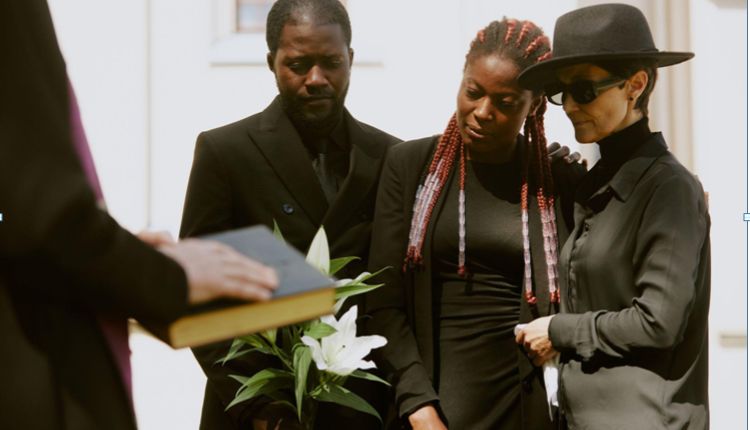If you’re facing a funeral decision right now, you’re likely exhausted—emotionally, mentally, and possibly financially. Choosing between burial and cremation is never just a logistical task. It’s layered with grief, family expectations, cultural pressures, and the quiet hope that whatever you decide will feel right. Most people don’t arrive at this moment prepared. That’s why many struggle to balance the wishes of the person who has passed away with the needs of those left behind. You might find yourself asking: What would they have wanted? Can we afford this? Will others understand our choice?
This is a profoundly personal crossroads, and no one path suits every family. But understanding how traditions and budgets shape this decision can help you feel more grounded, especially when time and emotion don’t allow for slow reflection.
How cultural values shape funeral decisions
In many Australian households, funerals carry a strong sense of tradition. For some, it’s rooted in religion. For others, it comes from family history or regional customs passed down over generations. Burial often remains the default choice—not necessarily because it’s preferred, but because it’s familiar. Parents did it that way. Grandparents did too. Deviating from that pattern can feel uncomfortable, even disrespectful.
However, cultural expectations don’t always align with personal beliefs. Some people quietly carry different wishes, hesitant to voice them while alive, unsure how they’ll be received. Others in the family might have opposing views entirely, which can make the decision feel more political than personal. The added pressure of doing what’s “expected” often becomes more intense when grief is fresh. And while some families find comfort in traditional rites, others feel conflicted by their cost or perceived lack of meaning.
That tension is real, especially in multicultural communities where generations live with very different relationships to faith, ritual, and identity. It’s not unusual to feel torn between honouring heritage and making a choice that fits the present moment. This is where conversations if they can happen, become invaluable—even if they’re complex or incomplete.
When cost becomes a deciding factor
It’s an uncomfortable truth, but money shapes funeral decisions more than most people admit. With the average burial costing several thousand dollars more than cremation, families are often forced to factor in what they can reasonably afford. And while no one wants to put a dollar figure on grief, ignoring the financial weight of this decision doesn’t make it go away.
In major cities, price differences are especially clear. Many families looking into cremations Sydney providers discover that even the most straightforward burial services often come with higher fees, from cemetery plots to headstone installation. That cost gap can make all the difference when arrangements need to be made quickly or when funds are limited.
It’s not just about saving money. Some people feel more comfortable with cremation because it allows for a quieter farewell, fewer formalities, or more time to plan a memorial. Others see it as a way to reduce environmental impact. But when cost becomes part of the discussion—and it usually does—it often shifts priorities. That shift can be challenging to discuss, especially if certain family members view simpler options as somehow less respectful.
Still, many families later express quiet relief. Not because they settled but because they chose something manageable that still allowed for grieving, reflection, and respect.
The emotional aftermath of your choice
What surprises many people is how they feel in the days and weeks after the service, not just about the person they lost, but about how the farewell unfolded. Some feel immense peace, primarily if the ceremony reflected the personality or wishes of their loved one. Others carry quiet doubts, wondering if different choices would have felt more appropriate. These reactions can surface long after the formalities are over.
Grief isn’t linear, and neither is the emotional weight of planning a funeral. For some, the simplicity of a small cremation service brings unexpected comfort. Others find solace in traditional rituals, even if they initially questioned the cost or structure. What often matters most isn’t the form, but whether the farewell felt meaningful to those who attended.
It’s worth noting that guilt can appear even after a seemingly smooth process. Families may worry they didn’t do enough, or that financial limitations shaped the day more than they wanted. That’s natural, but not always helpful. What tends to last isn’t the ceremony itself, but the sense of intention behind it—whether the choices made felt honest and considered, rather than rushed or forced.
Planning with less pressure and more clarity
If you’re still deciding—or just trying to support someone who is—know that there’s room to slow down, ask questions, and look at all the options. Many funeral providers now offer more flexible arrangements, especially in urban areas where families often want something personal but low-pressure. That flexibility can make a huge difference when emotions are high and time is short.
Planning, even in fundamental ways, can alleviate a significant amount of tension. Talking openly about end-of-life wishes—yours or someone else’s—can prevent the last-minute panic that often comes with loss. It also provides everyone with the space to understand why confident choices matter, whether emotionally, culturally, or financially.
The pressure to get everything “right” is heavy, but no farewell is perfect. What helps most is clarity about what you value, what you can manage, and how you want to honour the person who’s gone. With that, the decision between burial and cremation becomes less about what’s expected and more about what feels possible and actual.
Conclusion
There’s no single right way to say goodbye. Every family, every person, every farewell carries its context. Whether shaped by faith, finances, personal values or all three, the choices you make in those quiet, pressured days don’t have to match anyone else’s idea of what’s proper. What matters most is that they feel thoughtful, respectful, and manageable—because that’s where real peace often begins.






